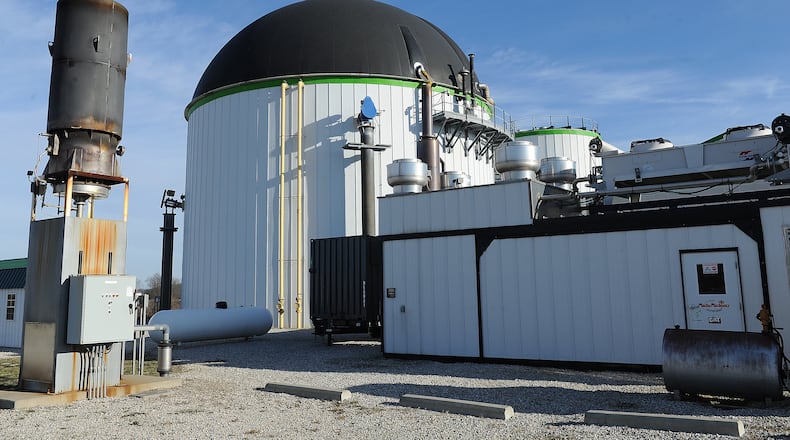The lawsuit, filed in April last year, is related to a controversial bioenergy facility in Bath Twp. owned by Dovetail Energy, and operated by Renergy, Inc.
The suit alleges the companies have allowed a 5.5 million-gallon fertilizer digestate lagoon at the biodigester site to emit “significant quantities” of ammonia. The local governments say the companies have failed to obtain an air pollution permit, while residents have repeatedly complained about nuisance odors.
In the same lawsuit, Fairborn and Bath Twp. alleged that the U.S. and Ohio EPA failed to enforce the Clean Air Act by allowing the companies to do so.
All defendants in the suit filed motions to dismiss the claims last year, the Ohio EPA doing so on the premise that legal precedent forbids individuals from suing them related to their duties as a regulator. The U.S. EPA asked for dismissal on the grounds of government immunity, and Renergy and Dovetail on the basis that the “diligent prosecution bar” was not met.
Diligent prosecution is the idea that citizens can’t file lawsuits for violations the government is already trying to enforce. The Ohio Attorney General filed a lawsuit against Renergy a week before Fairborn and Bath Twp. filed theirs, later settling with the company as long as they obtained a Permit to Install and Operate, or PTIO, for the lagoon.
The Ohio EPA is required to enforce “best available technology” practices and PTIO requirements as part of its regulatory duties, and it cannot be sued as a regulator by law, court documents say.
Anyone suing the federal government under the Clean Air Act must allege a failure of a non-discretionary duty, as defined under the Act. The U.S. EPA isn’t explicitly required by the legislation to enforce Ohio’s State Implementation Plan against “would-be violators,” the order says.
“Federal law, specifically, the Clean Air Act does not allow Ohio EPA to be sued in its role as regulator. We appreciate that the Court made the correct decision. Ohio Attorney General Dave Yost and Ohio EPA will continue to work to bring Renergy’s sites into compliance with Ohio law,” said Hannah Hundley of the Ohio Attorney General’s Office.
Lawyers for Fairborn and Bath Twp. declined to comment.
Newman wrote in his conclusion that he “empathized” with the individuals affected by this case.
“Our democracy is strengthened by citizens seeking to vindicate their rights in court, including suing the state and federal governments when appropriate to do so,” he said. “But this Court is bound to apply the law as set forth by the Constitution and federal statutes, as these laws are the cornerstones that hold our nation together. This Court’s duty ‘to say what the law is’ sometimes includes barring suits against the government where Congress has prevented the government from being sued.”
What is a biodigester?
A biodigester system is a source of renewable energy that uses organic waste, such as that from animals and humans, to produce fertilizer and biogas.
About the Author

